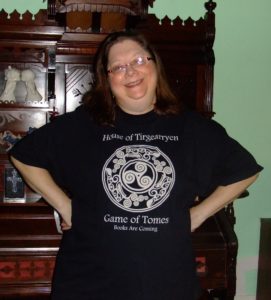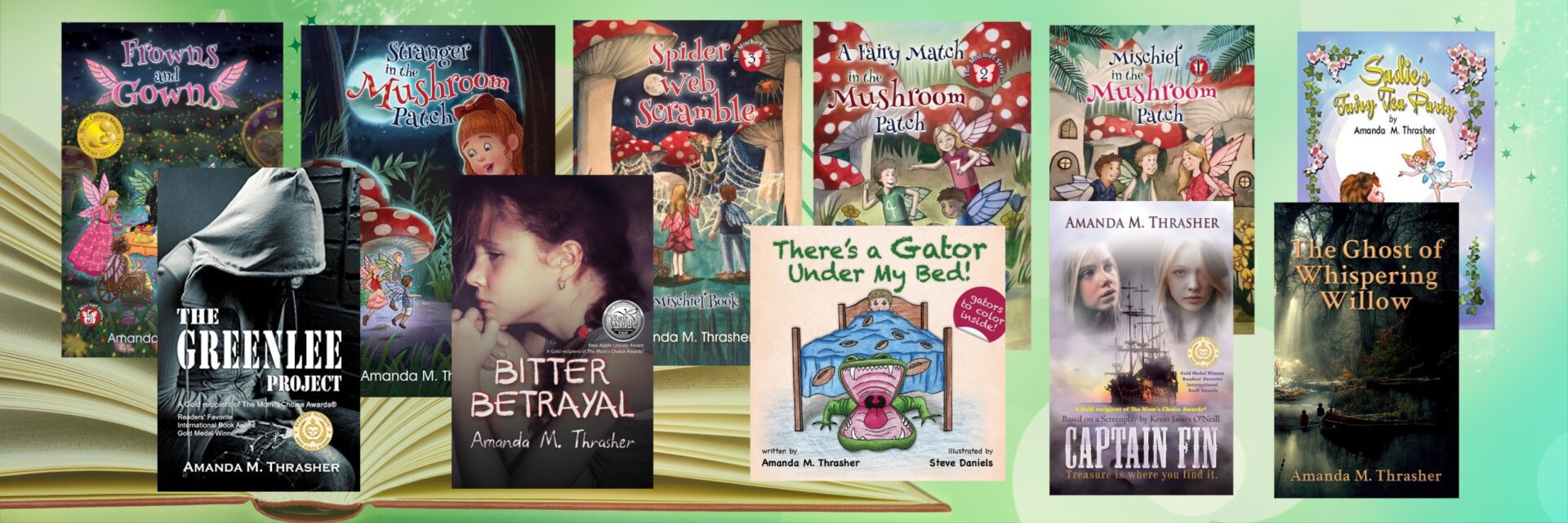
Dellani Oakes, a multi-talented woman, is the author of over a dozen award-winning novels. In addition to writing, she’s the host of a successful talk show, Books and Entertainment, where she often interviews authors, screenplay writers, and musicians. She’s published by Tirgearr Publishing company, and in addition to all of that, she’s a substitute teacher, all while managing to take care of her family. How she manages to keep up and handle it all is truly beyond me, but I couldn’t wait to find out more about her work.
Dellani started writing early in life, first pursuing poetry, but soon added song parodies, short stories, and humorous essays to her writing world. By 2002 Dellani started writing full time. In addition to multiple standalone novels, she has also contributed to several anthologies. I’m fortunate to call Dellani a friend, but everyone that knows her will tell you that she is one of the most helpful and approachable authors that you will ever meet. I can’t wait to share my interview with you, and when you read her books, I promise you will not be disappointed.
Interview Questions
- What is the first book that made you cry and did you write it?
That’s a hard one! I think that would have to be Little Women. My mother read to us a lot when we were younger, and that was a favorite. When Amy died, I cried like crazy. I think I was 6 or 7 at the time.
- Do you write what you want to write, (content-wise) or do you deliver what the market demands as in what we call marketable writing?
I always write what I love, what moves me. I’ve never been able to write toward market likes. At one time, I swore I’d never write a vampire story, but I did. However, it’s not your typical teen vampire romance (yuck). I also swore I’d never write about zombies, but I did that too. However, my zombies aren’t run of the mill zombies, either. While I might dip my toes into one genre or the other, you can expect the unexpected.
- What is the best investment you’ve ever made as a writer?
Crazy as it sounds, my best investment has been twofold: First, I decided to download Open Office (a free word processing program) I like it better than Word, and don’t argue with it nearly as much. Since I’m independent, and I also work for an author promotional service, I purchased Pizap to make covers and banners. It’s inexpensive and has paid for itself many times over.
- Which book did you write, the first experience, where a reader reached out (email, message, or other) and specifically told you that your words/work had touched or affected them in some way? … The power of your words.
I think that would be The Ninja Tattoo, a romantic suspense published with Tirgearr Publishing. One of my readers absolutely fell in love with Teague, the hero of the piece. She begged me to write a sequel and put her in it, so that’s how Conduct Unbecoming was born.
- How many times, if ever, have you started a project only to completely scrap it? If you’ve done this, why?
I’ve got many unfinished books, but it’s rare that I completely scrap something. I think that has happened once. I decided it really wasn’t what I wanted at all, so I deleted it. It wasn’t an easy decision, but after reading it, I realized I wasn’t ever going to finish it, and let it go.
- Do you ever doubt your ability as a writer?
I don’t know an author who doesn’t have moments of doubt! We spend so much time with a book, pour ourselves into it, heart and soul, finally finish it, get it published and it sits there – zero copies sold. That’s discouraging and disheartening. The only thing we can do is move on to something else, and fall in love with our work again. That’s not always easy, but if we want to continue expressing ourselves through words, we have to get over it and move on. (Not as easy as I make it sound, for sure!)
- Do you have a favorite character?
I have several. I adore Wil VanLipsig from my Lone Wolf Series. I also love Teague McMurtry and Jasper Waters from the Florida Families Series. My absolute favorite character would have to be Cullen Fellowes, from my Love in the City Romance Series. I haven’t published those books yet, but he’s in a bunch of them – so many, I lost track. I’m finally working on a book where he finds love. He’s an adorable guy, but he’s spent a long time looking for the One. He finally finds her.
- Have you ever been forced to give up on a character, hated to do it, but the storyline demand it; if so, what caused the scenario?
Yes. In fact, I had to kill off a favorite character. I cried like a baby. I was writing Wall of Time, a prequel to the Lone Wolf books (not yet published) and came up with this wonderful guy named Murdock Pickford. He’s just found out that his fiancée is going to have a baby, and he’s so excited about being a father. Then in a plot twist, which caught me completely unawares, he was horribly killed. It took me a while to get over that. I know that seems rather silly to some, but the fact is, these characters become our friends, and we’re very attached to them. To have one die so horribly, was sad. I truly didn’t want to kill Murdock, but for the story to progress, I had to.
- Which character have you developed caused you the most grief and why?
I think I have to go back to Wil VanLipsig to answer this. The Lone Wolf books begin in the year 3032. Wil is a Galactic Marine who was put through a series of medical experiments, which have made him virtually immortal. He’s lived 86 years, and doesn’t look a day over 30. With such a long and checkered past, he’s got a lot of baggage. It comes out at inconvenient times, causing him to overreact or go off the rails. More than once, I’ve been shocked at his actions. Then I have to realize that he’s acting well within his characteristics, and don’t reign him in. He knows what he’s doing (mostly) and his motives may not appeal to me, but they are legitimate. I feel if a character doesn’t go off the chain once in a while, I haven’t done a good job at creating him or her.
- I am by nature such a slow writer. How long does it take you to write a book?
With Indian Summer, my historical romance set in St. Augustine, Florida in 1739 – it took me nearly 10 years to finish. Partly due to a lack of time, partly because of all the research. However, I have written novels in as little as 4 days. It depends on how loud and persistent the voices in my head are. If they’re cooperating, it then depends on how fast I can type, and how much sleep I get.
- Has there ever been a time in your life you doubted your path as a writer/author?
So many times! I think it was worst when I was sending out query letters and getting rejections day after day. That is truly depressing. Also, when I see how poorly a book is selling, or I get a royalty statement for .27 cents – bring on the doubt!
- Do you have a go-to author for inspiration?
I really don’t. I try not to write like other authors, though it’s often inevitable. I find more inspiration in music and movies than in reading. I have many whose work I read over and over, but not so much for inspiration, as for fun.
- I know you love music and listen to music when you write. Does the music affect your scenes?
I am always listening to music. I don’t do well in silence. A lot of the time, I don’t really listen to it carefully, but rather have it in the background. There are times, though, if I’m writing an action scene, I will put on fast-paced, instrumental music. I find that guitarists like Joe Satriani are good for this. I’ve written a lot of my sci-fi battle scenes with him in the background. The opening scene for Lone Wolf was written while listening to Jeff Beck’s Blow by Blow album. I can still hear it in my head when I read it.
- Do you have any writing quirks?
If you mean like I must have certain snacks, beverage or music – no. If you mean plot elements that carry over from book to book, yes. My characters spend a lot of time in hospitals. Grant you, some of them are doctors or hospital administrators. Others have accidents, are attacked, or are clumsy. Some movies, TV shows, and books ignore injuries. Their characters come through unscathed, ready to go. The reality is, if a character gets in a knife fight, he’s more than likely going to get cut. If a woman is running down the street, and the heel comes off her shoe, she’s going to break a leg. I could go on and on, but won’t. Since my characters get into a lot of trouble, they spend a fair amount of time recovering from their injuries.
- What advice do you have for aspiring writers in today’s market?
Nothing beats a great editor! We may think we’ve got the best book in the world, but if it’s full of grammatical errors and typos, it’s clearly not. Whatever an author might think about keeping their work pure and unadulterated, readers want to be able to read it easily. Nothing kicks me out of a story more than errors in the text.
Also, don’t let the How-To books, articles, websites scare you. Tell the story your way. Don’t listen when someone says you can’t write in the first person, or in present tense. Tell the story the way it wants to be told. Get it finished, then go back and fix it. Any issues it has can be mended in editing. Let me reiterate my first bit of advice, find a good editor. If you can’t afford one, find a friend who is good with grammar, and ask for a favor. Many other authors will trade like for like, if you read mine, I’ll read yours. It’s helpful to have other opinions.
Finally, don’t let it get you down. You’re not going to make instant money. You’re not going to be the next Fifty Shades or Twilight—well, you might, but those are rare. Write what moves you, do your best, and keep going. Writing is an extension of yourself, do what makes you happy, and don’t worry about anything else.
